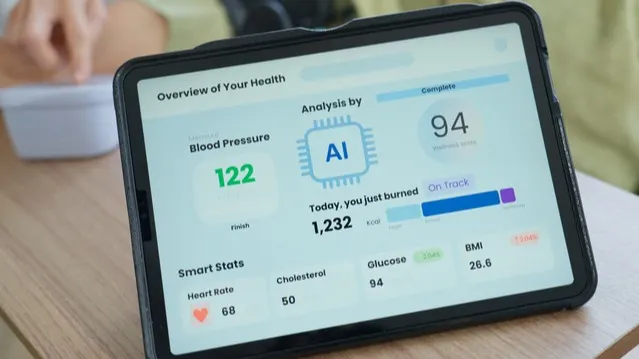
Overview
While the biopharma market continues to struggle financially, companies focused on digital health and AI are gaining traction with funders.
Investors Flocked to Digital Health Companies, with AI Leading the Way
The rapid adoption of artificial intelligence in healthcare has created new opportunities for investors and entrepreneurs, a lone bright spot for the broader down market in the biopharma industry.
According to CB Insights, funding for digital health companies surged 47 percent in the first quarter of 2025 compared to the last quarter of 2024, with $5.3 billion raised – the highest since the second quarter of 2022.
Startups focused on AI did extremely well, pulling in 60 percent of that investment. The median deal size rose nearly 20 percent to $6.4 million, “reflecting investor preference for later-stage startups with regulatory milestones and scalable AI platforms.”
6 AI-Driven Healthcare Unicorns Emerge in Q1 2025
The research firm also noted that six new “unicorns,” or a private company with a valuation over $1 billion, emerged in the first quarter alone, more than all of 2024, driven by AI.
Examples include Hippocratic AI, for patient follow-up; Abridge, for clinical documentation, and OpenEvidence, for decision support, which hit unicorn status with only 21 employees, the report said.
“With half focused on AI for provider workflows, the data suggests investor conviction is highest where AI directly supports care delivery,” according to CB Insights.
Beyond convenience, these digital health apps are also expanding access to care for many vulnerable populations, including women (see “Digital Health Tools Advance Women’s Autonomy, But Gaps Remain.”)
Funders Targeting High-Quality Healthcare Apps for Their Investments
Despite the surge in funding, the number of deals continued to decline 9 percent, indicating investors are prioritizing higher-quality companies versus investing more broadly in the market.
The ability of AI models to correctly diagnose diseases from scans, blood tests and imaging has also improved to the point where they can spot issues that humans might miss.
One study showed how Google’s AI system could diagnose skin rashes even from blurry photos – typically a tricky task, even for sharp-eyed humans. Another example involved how an AI app can diagnose anemia from a “fingernail selfie,” potentially letting patients avoid blood tests in the future.
In India, an initiative using AI-powered mobile apps helped local health workers in rural regions increase tuberculosis detection by 16 percent, according to the World Economic Forum.
Mobile Health Apps Expand to Address Mental Health and Wellness
The overall market for mobile health apps has grown exponentially in recent years, and is expected to hit $83 billion this year, according to a report by Research and Markets. Mental health is an area that has seen a particular increase in attention. With a shortage of providers and patient retention issues, AI chatbots could help fill the gap.
A recent study evaluating the performance of an AI therapy chatbot found significant improvements in symptoms for people living with depression, anxiety and eating disorders.
“Fine-tuned Gen-AI chatbots offer a feasible approach to delivering personalized mental health interventions at scale, although further research with larger clinical samples is needed to confirm their effectiveness and generalizability,” the study authors wrote.
But the appeal of these tools extends beyond clinical diagnoses. The Global Wellness Institute found that digital wellness apps, many powered by AI, are increasingly used by individuals looking to manage stress, improve sleep and build emotional resilience.
These tools are especially popular among workers in high-burnout professions, such as healthcare, where employers are investing in platforms that provide scalable, round-the-clock support. These apps offer on-demand coaching, mindfulness exercises and mood tracking features that can help users maintain mental well-being before more serious issues emerge.
“Digital tools for stress reduction, sleep enhancement, and emotional support are becoming mainstream, particularly among younger users who prefer app-based self-care over traditional methods,” according to the Institute.








